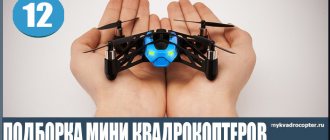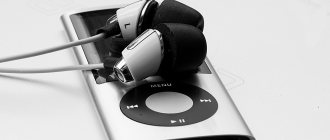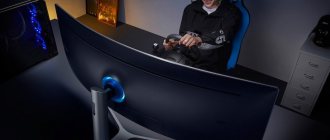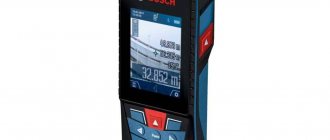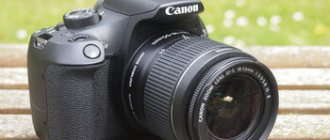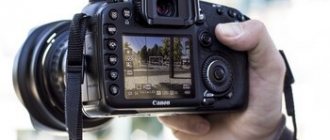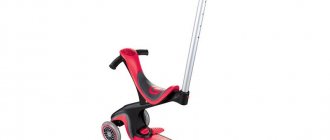Welcome to a world full of breathtaking landscapes!
Once upon a time, drones were used only by the military for reconnaissance. Now, anyone can buy a UAV. You can take the same photos or even better with top-of-the-line aerial photography drones. We have collected 16 of the best in this rating, so their prices will not be small. Let's start with the last one - 16th place. For those who do not have time to fully familiarize themselves with the rating, we have prepared the table below.
comparison table
| Name | Camera | Flight time | Claimed control range | Airspeed | Price | Review |
| Hubsan Zino 2 | 4K@60fps | up to 40 minutes | up to 8 km | up to 72 km/h | from 499$ | There is |
| FIMI X8 SE 2020 | 4K | up to 35 minutes | up to 8 km | up to 65 km/h | from 419$ | There is |
| Parrot Anafi | 4K | up to 25 minutes | up to 4 km | up to 50 km/h | from 650$ | There is |
| DJI Mini 2 | 4K | up to 31 minutes | up to 10 km | up to 57.6 km/h | from 449$ | There is |
| XDinamics Evolve | 4K | up to 21 minutes | up to 1 km | up to 96 km/h | from $2499 | There is |
| Yuneec Typhoon H Plus | 4K@60fps | up to 25 minutes | up to 1.6 km | up to 70 km/h | from $2192 | There is |
| DJI Mavic Pro (Platinum) | 4K | up to 27/30 minutes | up to 7km | up to 65 km/h | from 999$ | There is |
| Autel Robotics EVO | 4K@60fps | up to 30 minutes | up to 7km | up to 72 km/h | from 799$ | There is |
| Skydio 2 | 4K@60fps | up to 23 minutes | up to 3.5 km | up to 58 km/h | from $1349 | There is |
| DJI Mavic Air 2 | 4K@60fps | up to 34 minutes | up to 10 km | up to 68.4 km/h | from 799$ | There is |
| DJI AIR 2S | 5K@30fps | up to 31 minutes | up to 12 km | up to 68.4 km/h | from 999$ | There is |
| Yuneec Typhoon H3 | 4K@60fps | up to 25 minutes | up to 2 km | up to 70 km/h | from $3292 | There is |
| DJI Phantom 4 Pro V2.0 | 4K@60fps | up to 30 minutes | up to 10 km | up to 72 km/h | from 1599 | There is |
| DJI Mavic 2 Pro | 4K | up to 31 minutes | up to 10 km | up to 72 km/h | from $1599 | There is |
| Autel EVO II Pro | 6K | up to 40 minutes | up to 9 km | up to 72 km/h | from $1796 | There is |
| DJI Inspire 2 | 4K/5.2K/6K | 25 minutes | up to 7 km | up to 93 km/h | from $2999 | There is |
Top 3 budget quadcopters
Syma X20
The baby Syma X20 is smaller than its remote control. Photo: Ready Set Drone Youtube channel
Size: 5 (nanodrone) Flight characteristics: 3 Flight time: 2 Data transmission, remote control: 4 (we give a four for a separate control panel and do not forget that this is a toy, not a pro model) Camera: – Additional functions: 3 GPA: 3.4
Let's start with the most interesting, in our opinion, representative of toy (they are also called micro- and nanodrones) quadcopters. These are drones that are used for entertainment and flight training. You can safely give them to children (without fear that the child will break some expensive Mavic).
So, Syma X20 is a great option to get acquainted with unmanned devices and learn how to control a quadcopter (and drone operator is the profession of the future). Unlike many models in this class, Syma has a shock-resistant design and a whole set of additional functions, including auto take-off, altitude hold with flips (somersaults), automatic landing when the battery is low. In the kit you will find a drone control panel.
Of course, this is not a serious flight model - it flies for about 5 minutes on one charge. The maximum flight range is only 70 meters (which is logical given such a flight time). Well, this nanodrone is not friendly with the wind. And yes, it doesn’t have a camera at all (we promise, this will be the top quadcopter with only a camera), although it simply couldn’t be in a bug that weighs 22 grams and costs less than 2,000 rubles.
DJI (Ryze) Tello
DJI (Ryze) Tello comes with propeller guards. Photo: xiaomitoday.com
Size: 5 Flight characteristics: 3 Flight time: 3 Data transmission, remote control: 3 Camera: 4 (for its class) Additional functions: 4 Average score: 3.7
Tello, of course, cannot be called a new product, but it is such an outstanding drone in its class that it is simply impossible to bypass it in such a top.
It already weighs more than the Syma (80 grams), but we definitely don’t recommend using the Tello in the wind. The mini-drone has a 5-megapixel HD camera with electronic stabilization that is quite decent for its class, but if you want a quadcopter for photography, we still recommend paying attention to the following top devices.
Although the model was designed by startup Ryze, it is based on technology from DJI, so you will find a whole range of automatic flight and shooting modes - from selfie to Orbit, as well as take-off and landing in the palm of your hand.
13 minutes of work on a single charge, decent for its class, Wi-Fi connection and a range of one hundred meters are also advantages of this baby. And Tello is still the best drone for teaching teens the basics of robotics: it can be programmed to perform a variety of scenarios using the intuitive Scratch language.
But there is nothing ideal in this world - Tello is controlled only from a smartphone, it does not have on-board memory or a control panel.
DJI Mini 2
The second Mini began to look even more like a Maviki. Photo: DJI/theverge.com
Size: 5 Flight characteristics: 4 Flight time: 5 Data transmission, remote control: 5 Camera: 5 Additional functions: 4 Average score: 4.7
Here we come to the king of budget drones (unfortunately, at the current rate it is slowly but surely moving towards the middle segment) - DJI Mini 2. A detailed review of this 2021 quadcopter can be read here. And we will remind you the most important thing, why we love the second “mini” so much. Weighing in at 249 grams, this drone packs a surprising amount of cool stuff into it. Firstly, it flies for 31 minutes on a single charge. Secondly, it shoots video in 4K/30p with a bitrate of 100 Mbps, and takes photographs in RAW.
From its older brothers, Mini 2 received the OcuSync 2.0 communication system and a bunch of different automatic flight modes. Updated motors allow Mini 2 to withstand wind speeds of up to 11 m/s, so it is already a full-fledged flight drone. Although the lack of obstacle avoidance sensors may make life difficult for some beginners.
Comparing budget quadcopters
| Syma X20 (toy nanodrone) | DJI (Ryze) Tello | DJI Mini 2 | |
| Size | 5 | 5 | 5 |
| Flight characteristics | 3 | 3 | 4 |
| Flight time | 2 | 3 | 5 |
| Data transmission, remote control | 4 | 3 | 5 |
| Camera | — | 4 | 5 |
| Additional functions | 3 | 4 | 4 |
| Average score | 3,4 | 3,7 | 4,7 |
We admit, it is not entirely correct to compare a toy drone, a microdrone for training and a new model from DJI (albeit an entry-level one), but we wanted to show in this top different categories of budget drones for beginners.
Control and data transfer
Drones aimed at more advanced users feature separate remote controls with buttons and switches for important functions. You can connect the quadcopter to the control panel via Wi-Fi or a special data transmission system, which usually provides a longer operating distance and a more stable connection compared to Wi-Fi. For example, DJI's OcuSync 2.0 system operates at a range of up to 10 km, while the maximum Wi-Fi transmitter range in the company's cheaper drones is 4 km.
- If your goal is to take high-quality photos or videos, the best option would be a remote control with a special data transmission system.
To take high-quality photos and videos, it is better to choose drones with a separate remote control. Source: pixabay.com
- Important: according to safety rules, your drone must always be in line of sight!
Mini- and selfie-drones are usually controlled via a smartphone; the range of transmitters here is no longer measured in kilometers, but in meters. If you want to carry the drone “in your pocket”, taking it out, for example, for family photos on a walk, this is a convenient option without the need for unnecessary devices. Many quadcopters can be controlled using special gestures—for a number of tasks, the remote control is no longer needed.
Some models, for example DJI Spark, are controlled both from a smartphone and using a separate remote control.
Results
DJI Phantom is one of the most popular drone lines in the entire history of this industry.
Buying a drone is similar to buying a camera - choosing the right model mainly depends on how you intend to use it:
- Decide what you want from the drone - fly it for fun, shoot professional videos, or take panoramic photos.
- Decide what size quadcopter will suit your needs: it could be a mini drone for travel or a more advanced but larger model.
- Choose among drones with cameras that will provide the photo and video quality you need.
- Don't forget about flight performance: flight time on a single charge may be a critical factor for you.
- Choose control methods and data transmission systems depending on the tasks: for professional work you will need a remote control and a communication system like OcuSync 2.0 from DJI.
- Pay attention to the presence of automatic flight modes and an obstacle avoidance system, which will greatly simplify working with the drone in the initial stages and help you shoot high-quality video.
- Consider not only the price of the drone itself, but also the cost of its accessories. To some extent, you are buying not only the quadcopter itself, but also the manufacturer's ecosystem - the communication system, application and accessories.
However, sometimes modest practical experience can mean more than any theoretical calculations. So if one of your friends has a drone, ask them to try to fly it a little. Also keep an eye on our reviews - manufacturers are constantly improving their models by adding features, and new budget drones are gaining capabilities that were previously only available on high-end devices.
If you already have a quadcopter and want to share your experience, we will be glad to hear about it in the comments.
*When preparing this article, materials from the resources dpreview.com and drone1.ru were used.
Ideal frame for quadcopter
The ideal frame for a quadcopter should be light and strong, but as is usually the case with quadcopters, this requires some sacrifices, for example in balance.
The design and material of the frame determine how resistant it is to crashes. Sturdy frames tend to be heavy but more stable in the air, while light frames are the opposite and are light and nimble.
Mini quadcopters are designed for FPV racing, speed is the main concern, so accidents and collisions are inevitable. For pilots on a limited budget, this is quite important, because if you break a beam or another part of the frame, you will have to buy a new one entirely, since frames are not sold in parts, or order a separate part on some Banggood or Aliexpress.
The lightweight frame allows you to fly longer by reducing the energy costs of holding heavy weight, responds faster to commands and accelerates faster. But there is a drawback - lightweight frames are subject to increased vibration and flexibility, this can affect the flight controller and PIDs, making it quite difficult to adjust the PIDs. Also, lightweight frames usually lack any kind of component protection, for the sake of weight, of course.
The frame has a huge impact on flight characteristics, such as: aerodynamics, weight distribution, stiffness, etc., absolutely everything affects the flight characteristics.
See about copters: Radio-controlled quadcopter Hubsan H107D FPV X4 Plus with FPV camera buy with delivery in Moscow, Moscow region and Russia
A racing quadcopter frame is more than just laminated carbon (it's also carbon fiber, carbon fiber, carbon fiber). The design of the frame determines how easily the drone's components can be installed and assembled into one unit. Increasingly, frame designers are adopting shapes that make the frame look cool, hold everything you need, and protect components at the same time.
Size
This is an important criterion because it directly affects portability and ease of use. The common phrase “the best camera is the one you have with you” is quite applicable to quadcopters.
- If you need a drone that you can carry with you anytime, anywhere, you should pay attention to miniature models weighing up to 250 grams.
A drone like the DJI Mavic Mini (and the new generation Mini 2) fits easily into your pocket or bag. In most compact models, manufacturers compromise, cutting down functionality somewhat in exchange for portability, but with the Mavic Mini, DJI seems to have found a middle ground. Even if you end up choosing a less advanced mini model like the DJI (Ryze) Tello, the ability to launch the quadcopter at any time is sometimes worth sacrificing stability in windy conditions or obstacle avoidance.
DJI Mini 2, although it fits in the palm of your hand, boasts very advanced functionality. Source: theverge.com
Compact, foldable drones like the DJI Mavic Air 2 and Skydio 2 offer all the features found in larger models while remaining small enough to take on trips, camping trips, and filming a variety of extreme sports.
Larger drones, like the Mavic 2 Pro and DJI's Phantom series, usually boast better performance in terms of flight performance and shooting. Although progress does not stand still and the same Mavic 2 Pro can be placed in a backpack with other equipment, usually a separate case is needed to transport a high-end quadcopter.
Camera
When it comes to flying, weight is of utmost importance, so drones have lightweight cameras with small sensors and miniature lenses. However, there are important differences between the models.
Some quadcopters have very small sensors, similar to those found in smartphones. For example, the miniature DJI (Ryze) Tello is equipped with a 1/5″ sensor, and this is one of the factors that allows the drone to remain so small. The most common matrix size in modern quadcopters remains 1/2.3″.
Cameras with 1/2.3″ sensor remain the most popular cameras for drones. Source: androidauthority.com
The type of shutter also matters: some models, such as the DJI Phantom 4 PRO, are equipped with a mechanical shutter, which helps eliminate artifacts such as rolling shutter during shooting.
Finally, pay attention to the available formats and recording quality. Many drones can shoot photos in RAW in addition to JPEG, and for video shooting, 4K is becoming the standard everywhere.
- If you plan to shoot a lot of high-quality video, pay attention not only to the resolution, but also to the frame rate, bitrate and codecs used.
